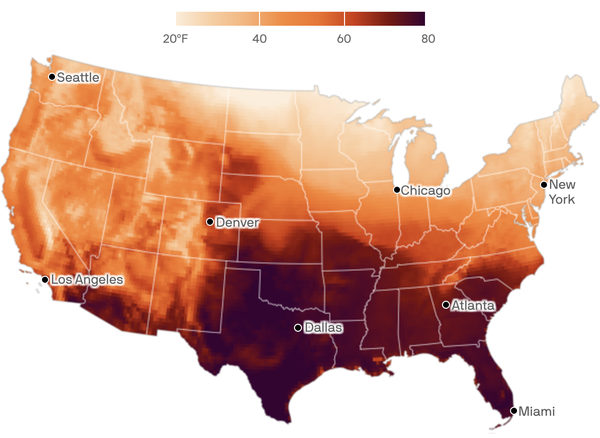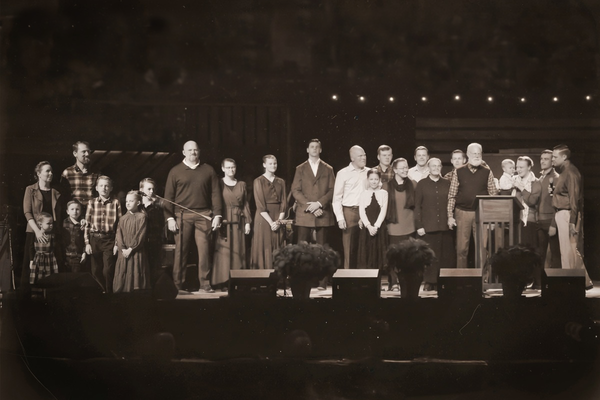God’s Provision in Times of Plenty and Trial
I started this past Thanksgiving Day with the six turkeys I had cooked spread before me on our kitchen island —two fried, two roasted, and two smoked. The air was filled with the rich aroma of flour browning in the gravy, mingling with the savory fragrance of roasted meat that has been the smell of

I started this past Thanksgiving Day with the six turkeys I had cooked spread before me on our kitchen island —two fried, two roasted, and two smoked. The air was filled with the rich aroma of flour browning in the gravy, mingling with the savory fragrance of roasted meat that has been the smell of Thanksgiving since I was a small child. Five of the birds had already been carved, their succulent slices arranged on platters by Beck almost as fast as my brother and I could carve. Surrounding the island were my children, a lively circle of chatter and laughter. They darted hands toward the cutting boards, snatching pieces of turkey, more excited about this spontaneous countertop buffet than the meal waiting for them at the table.
However, the sixth and final bird stood apart—a masterpiece untouched by knife or fork. Its bronzed skin glistened under the light, crackling as if promising its flavors would be worth the wait. I carefully set it aside, wrapped and ready, to take to the Thanksgiving gathering at my brother’s house just a few hundred yards down the road. It was an excellent start to a beautiful day. That way, the rest of the family could join in the tasty morsels as I carved the final bird. He was one to look at, too. And as I enjoyed the blessing of this modern-day Thanksgiving, I thought back to where the tradition began.
The first Thanksgiving was over 400 years ago—a jubilant celebration of survival and abundance. It marked a harvest plentiful enough to sustain America’s early Pilgrims through the coming winter. Those winters had already proven devastating. Just months earlier, half the colony had succumbed to the brutal cold and disease. The survivors knew they would face the same fate if their farming efforts failed. Yet, through diligent labor, alliances with Native Americans, shared wisdom, and an exceptionally bountiful harvest, their lives were spared. That autumn, they gathered with full hearts, full bellies, and full pantries—ready to brave whatever winter might bring.
Americans today live in such comfort, surrounded by abundance, that it’s difficult to grasp the depth of gratitude those early Pilgrims must have felt. Yet, not so long ago, our own forebears faced incredible hardships. In my ministry across nursing homes and retirement centers in central Texas, I met countless people from all walks of life who shared their stories of enduring the Great Depression. Many would say, “You know, we survived it. People today don’t know how hard it was—my mother saved bacon grease for cooking. We didn’t buy a new set of clothes for two years.” Their tales often served as a cautionary reminder to today’s take-it-for-granted generation. But their stories also carried a sense of pride. They had weathered an unimaginably difficult time and discovered within themselves a resilience, strength, and perseverance they wanted others to recognize.
My grandfather, a young boy during the Depression, worked on his family’s farm. He often said they were so poor they didn’t even realize the Depression had come—or gone. Yet, their farm provided what others considered a luxury—fresh meat, vegetables, and enough nourishment to see them through.
I can only imagine the depth of gratitude that must have welled up in many American hearts during those hard-earned Thanksgivings. Thanksgiving is not merely about looking back on blessings; it gains its richest meaning when paired with an awareness of the challenges ahead. When one contemplates the cold winter looming on the horizon, Thanksgiving becomes both a prayer of gratitude and a plea for continued grace—an acknowledgment that the summer has ended, the harvest is gathered, and we must now prepare to face the unknown.
For some, that “winter” may take the form of personal trials—grief, affliction, or the loss of loved ones. For others, it may be the bitter winds of hostility or persecution against their faith communities. Our own community has felt the sting of slander, hatred, and betrayal from those once trusted. Yet, many believers sense an even greater “winter” approaching—not just in the months to come but in a cultural and spiritual chill threatening to make the love of many grow cold. In some parts of the world, this winter takes the form of State oppression; in others, it comes disguised as modernity’s distractions, luxuries, and temptations. These subtle comforts can chill the fire and fervor of believers, leading them from hot to lukewarm—and ultimately, to cold.
This season invites us all to take stock of the “pantries” of our lives. How much of the Spirit’s provision, truth, and the community of Christ have we stored up? Are we ready for the shift from warm and supportive surroundings to an environment that may turn cold, hostile, and rejecting of our values and faith?
“I have never seen the righteous forsaken, or their children begging for bread.” - Psalm 37:25
Stretching this metaphor further, times of plenty often precede times of famine. While some believe America is heading into years of prosperity—and I hope they’re right—what will we do with such an extended “summer” of blessing? Will we delude ourselves into imagining that peace is all we have to anticipate? If so, we may echo the lament of Jeremiah: “The harvest is past, the summer is ended, and we are not saved.” Or will we, like Joseph, recognize a season of plenty as God’s provision for the famine that follows? May we commit ourselves anew to advancing God’s kingdom, strengthening our witness, and equipping the next generation for whatever lies ahead. God help us.
As we gathered around the Thanksgiving table—more than 80 of us in a dining room filled with laughter and song—our voices blended, young and old, strong and weak, to lift a prayer of gratitude:
“Give thanks with a grateful heart,
Give thanks to the Holy One,
Give thanks because He’s given Jesus Christ, His Son.
And now, let the weak say, ‘I am strong,’
Let the poor say, ‘I am rich,’
Because of what the Lord has done for us. Give thanks.”
We were blessed to host a dozen out-of-town guests, including Sister Thetus Tenney, her children, and grandchildren. Sister Tenney, a radiant saint of God, is preparing to celebrate her 90th birthday. She has spent her life serving the church, spreading the gospel, and establishing home mission churches alongside her now-departed husband. Fifty-three years ago, when my mother was just weeks old in her new-found faith in Jesus, Sister Tenney delivered the first message she had ever heard about the love of God.
My parents ministered alongside the Tenneys, preached in their church, and hosted them to preach in our Paramus, New Jersey congregation. In fact, my dad’s five decades of literature and publishing work began when Sister Tenney asked him to write six pamphlets on the fruits of the Spirit—a moment of divine commission that helped launch his lifelong ministry.
At our gathering, Sister Tenney addressed the room with grace. Her white hair and sharp eyes shone with the beauty of holiness. She expressed how blessed and grateful she was to see our community’s emphasis on home and family life. “These have been burdens on my heart for many years that I have not yet been able to see realized,” she said. She spoke of the importance of teaching women to be homemakers and raising children in a home environment where they find meaning and purpose. She also shared her profound joy at how our children experience and thrive in a culture of music—something often absent in today’s church. She paused as she wept—tears of joy and hope.
Sitting across from her was like encountering the prophetess Anna. Her presence radiated faith, and her hope reminded us that God’s work often surpasses what we can see.
It was one of the most glorious Thanksgivings in memory. Her grandchildren sang in beautiful harmony, followed by our family, as voices lifted together in praise that God had not left us hungry but had filled our storehouses, fed us in the past, equipped us for the present, and prepared us for the winter.
"He has filled the hungry with good things, and the rich He has sent away empty." - Luke 1:53
The storehouses of truth are full, and the storerooms of love are brimming in each heart.
And what a phenomenal Thanksgiving festival we just had! I’ve never seen the seminars more packed—people stood and sat on the floor after all the chairs were taken. The hunger and engagement were palpable. I pray that those who came seeking left not empty-handed but filled with hope, truth, and grace.
God has been good to us. I give thanks—not because I don’t know winter is coming, but because He has prepared us.
“Eye has not seen, nor ear heard, nor have entered into the heart of man the things which God has prepared for those who love Him." - 1 Corinthians 2:9
The Lord bless you and keep you; the Lord make His face shine upon you and be gracious to you; the Lord lift up His countenance upon you, and give you peace!
With much love and great thanksgiving,
Asi





